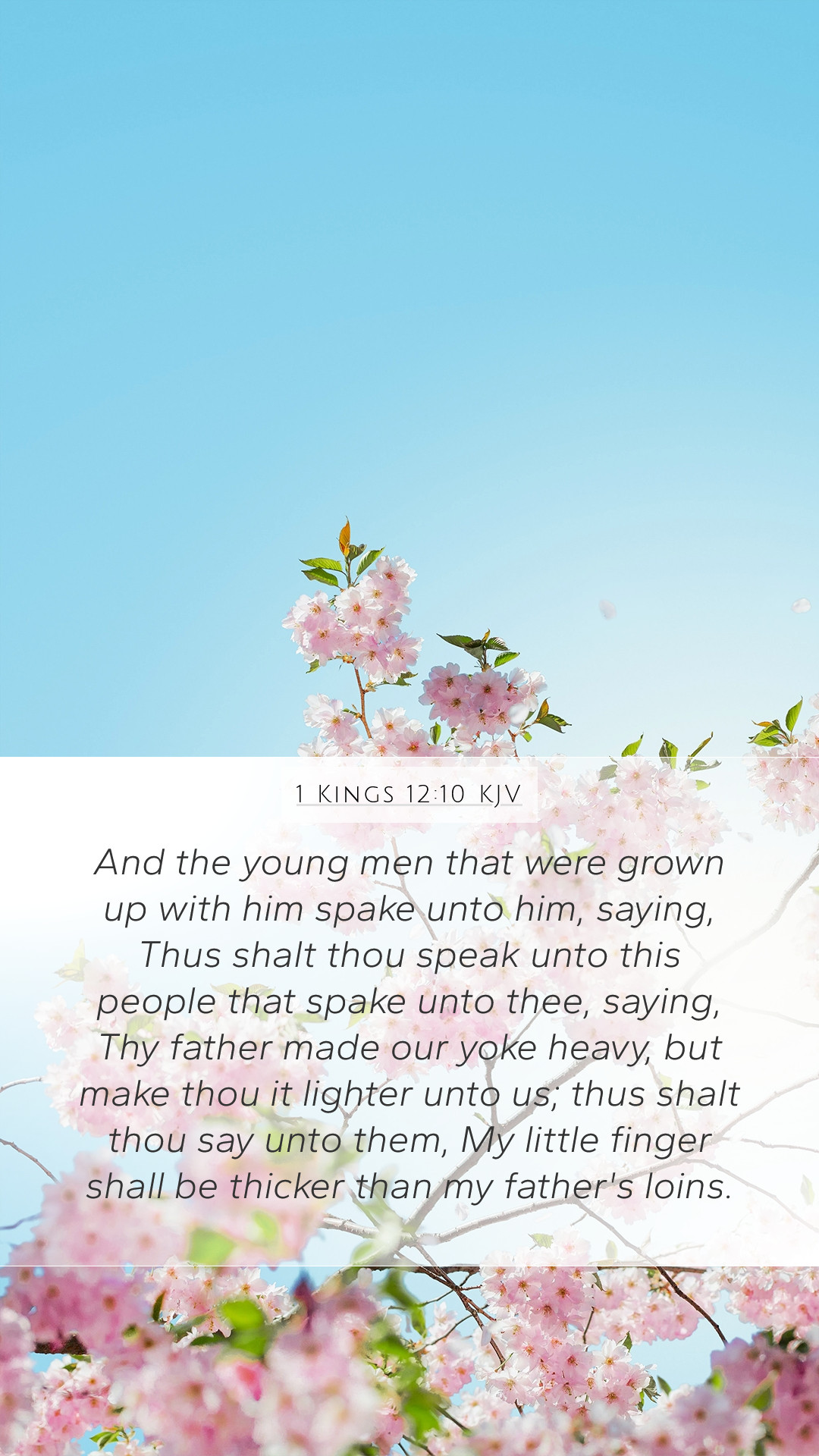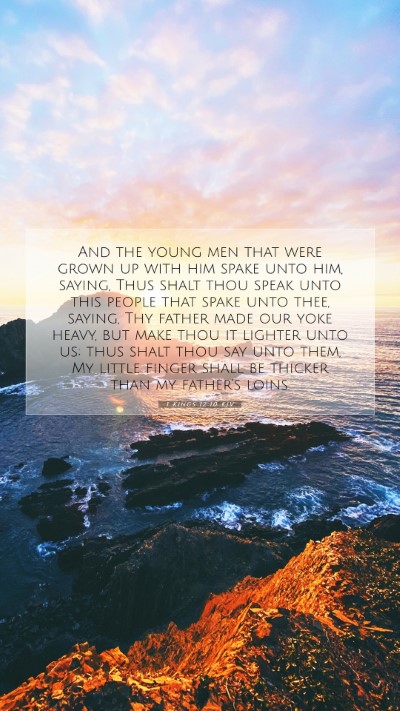Bible Verse Commentary: 1 Kings 12:10
Verse: "And the young men that were brought up with him spake unto him, saying, Thus shalt thou speak unto this people that spake unto thee, saying, Thy father made our yoke heavy, but make thou it lighter unto us; thus shalt thou say unto them, My little finger shall be thicker than my father's loins."
Understanding the Context
This verse occurs in a critical moment in Israel's history, specifically during the transition of leadership from King Solomon to his son, Rehoboam. After Solomon's death, the people of Israel sought relief from the heavy burdens placed upon them by Solomon. The context highlights the challenge of leadership and the importance of wisdom in governance.
Commentary Insights
-
Matthew Henry:
Henry emphasizes the folly of Rehoboam in seeking counsel from his peers rather than older, wiser advisors. He notes that the advice given by the young men reflects a lack of understanding of the people's needs and a desire for power. This moment illustrates the consequences of failing to consider wise counsel in leadership.
-
Albert Barnes:
Barnes highlights that the young advisors' suggestion for Rehoboam to respond with arrogance only served to alienate the people further. He suggests that this verse symbolizes the broader themes of pride and the misuse of authority, showcasing how a leader's decisions can greatly impact their relationship with their followers.
-
Adam Clarke:
Clarke reflects on the implications of Rehoboam's decision to address the people's request with a dismissive attitude. He elaborates on the cultural significance of the yoke, representing servitude, and how failing to alleviate the burden could lead to rebellion and division within the kingdom.
Key Themes and Lessons
-
Leadership and Counsel:
This verse serves as a lesson in the importance of seeking wise counsel. Rehoboam's decision showcases the pitfalls of ignoring experienced advisors, especially in challenging situations.
-
The Consequences of Pride:
The response ordered by Rehoboam signifies how pride and arrogance can lead to the downfall of leadership. The decision to emphasize strength over compassion alienated the people, leading to a significant division within Israel.
-
Historical Context:
Understanding this passage requires awareness of the socio-political climate of ancient Israel, the expectations of the people from their leaders, and the role of burden as a metaphor for governance.
Cross References
- 1 Kings 12:1-5: Details the people's request for a lighter yoke.
- Proverbs 11:14: Highlights the necessity of wise counsel in decision-making.
- Luke 22:24-27: Discusses leadership and servitude as Jesus contrasts the world's view of authority with servant leadership.
Application to Daily Life
In our personal and communal lives, this passage challenges us to consider the weight of our decisions and the impact on those we lead or influence. It advocates for humility, the importance of seeking advice from experienced individuals, and the integrity required to serve others well.
Conclusion
The study of 1 Kings 12:10 invites readers to reflect on the nature of authority and the weight it carries. By interpreting this verse, we gain valuable insights not only about ancient Israel’s political strife but also about contemporary leadership dynamics and interpersonal relationships.


